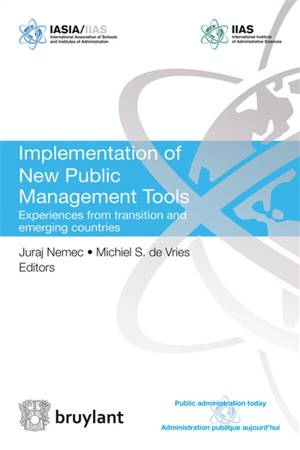
- Retrait gratuit dans votre magasin Club
- 7.000.000 titres dans notre catalogue
- Payer en toute sécurité
- Toujours un magasin près de chez vous
- Retrait gratuit dans votre magasin Club
- 7.000.000 titres dans notre catalogue
- Payer en toute sécurité
- Toujours un magasin près de chez vous
Implementation of New Public Management Tools
Experiences from transition and emerging countries
De Vries Michel S.Description
The last decades a transformation of the public sector under the label of New
Public Management was seen. NPM was especially supported for its novel
ideas on including private sector practices, such as performance management, in
the delivery of public sector services and for its idea to substitute the public sector
by the private sector. With the benefit of hindsight one can conclude now that the
success rates of such reforms varied.
Whether the role of government and its strength is really determinative in shaping
optimal models for service delivery is one of the main questions in the current debate
and is also one of the reasons for inviting a number of scholars from countries in
transition, that is, outside the usual realm of investigation, to tell about and analyze
the developments in this regard in their home-countries.
First of all, these are scholars from the so-called BRICS-countries, that strange
group of nation-states, from several parts of the world of which the first letters of
their names constitute the world BRICS, namely Brazil, Russia, India, China and
South Africa. Secondly, scholars from Central and Eastern Europe were invited to
write about the experiences in their countries.
The central question these scholars focus on is how two New Public Management
Tools evolved in their countries, that is, performance management and involving
the private sector in previously public service delivery and what problems these
countries encountered.
Spécifications
Parties prenantes
- Auteur(s) :
- Editeur:
Contenu
- Nombre de pages :
- 396
- Langue:
- Anglais
- Collection :
Caractéristiques
- EAN:
- 9782802749998
- Date de parution :
- 18-06-15
- Format:
- Livre broché
- Dimensions :
- 160 mm x 241 mm
- Poids :
- 652 g







